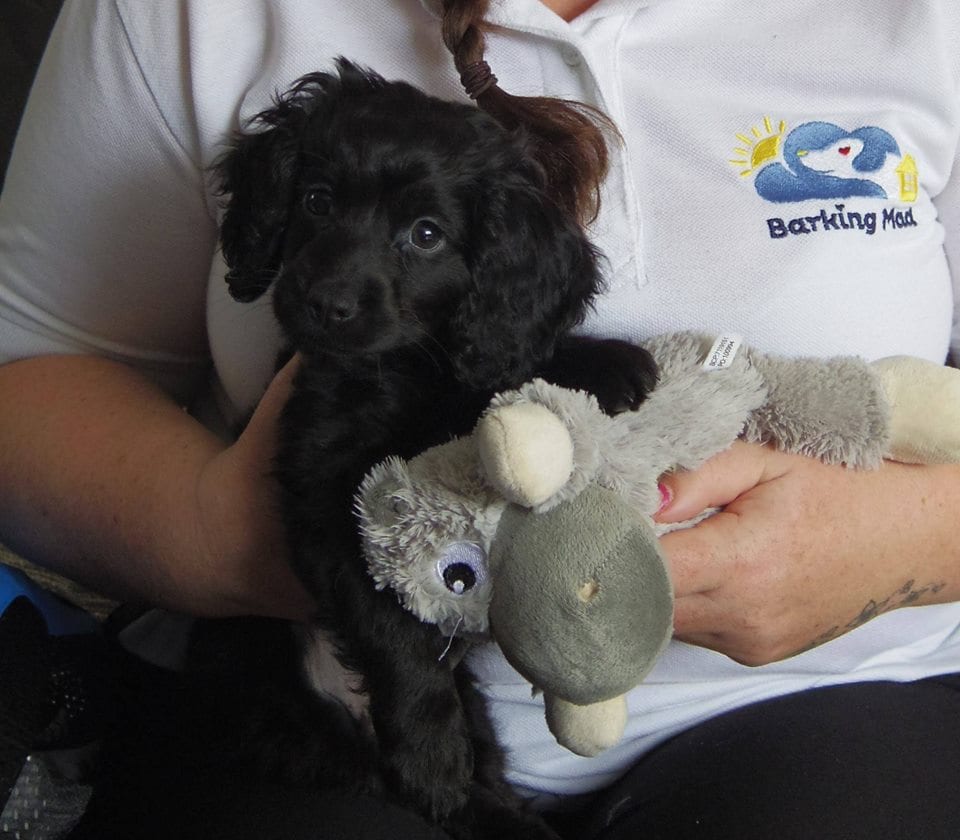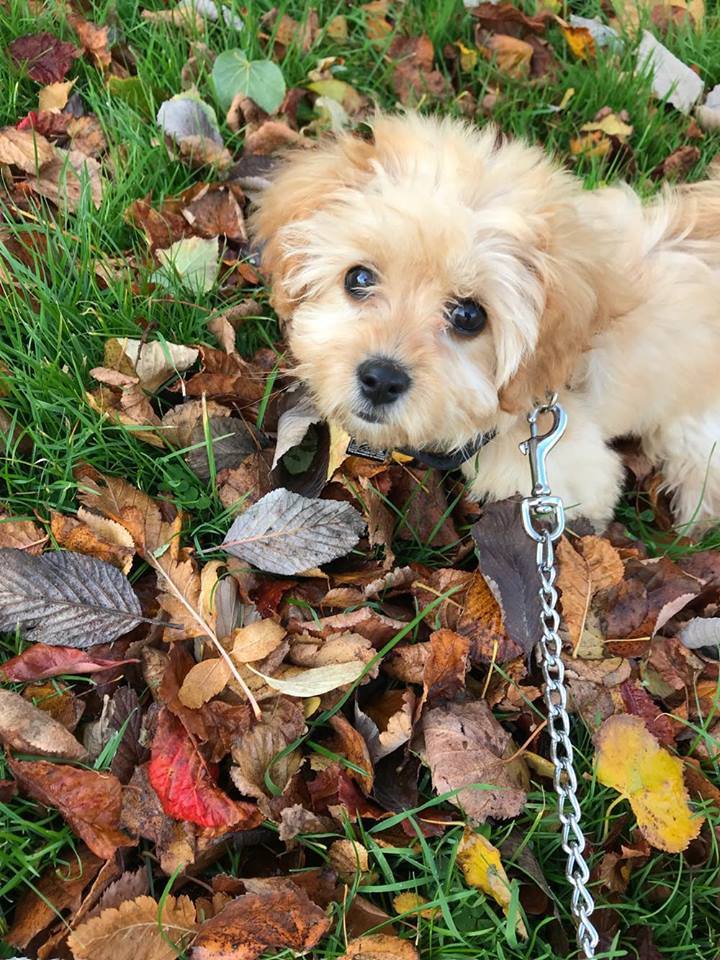By Barking Mad’s in-house dog trainer and behaviourist, Lisa Mercer, of Just Rewards Dog Training
Once you have made the decision to get a puppy, choosing the one that’s right for you could be the difference between many trouble – free, happy years and a worrying, possibly heart-breaking future! It’s so important to do your homework before you go and view any puppies, as once faced with all those adorable bundles of fluff, your common sense can completely fly out of the window.
Puppies arrive baggage free – true or false?
This is in fact, FALSE. Puppies do not arrive with a clean slate. Both nature and nurture have a huge impact as a puppy will inherit genes from it’s parents and these genes will influence the puppy’s genetic potential to behave in a particular way, such as:
- Using aggression as a strategy to deal with difficult situations
- Sociability towards people and dogs
- Fearful responses
- Strong instinctive behaviour to hunt, chase, grab and hold
- Trainability including the ability to learn self-control as humans desire it
How to get it right first time
1. Which breed?
Firstly learn about the breed traits, temperaments, natural instincts and energy levels to ensure you pick a puppy that will suit your lifestyle. For example:
- Avoid a breed that dislikes being left alone if you aren’t at home all day.
- Steer clear of a breed with high energy levels if you don’t have the time and inclination for long walks every day.
- Be guided by breed traits and instincts e.g a one bedroom flat in a town would not be suited to a Border Collie who is very intelligent with extremely strong natural instincts and a very strong desire to work.
If these needs are not taken into consideration, then behaviour problems will occur. A good breeder should not let their puppy go to an unsuitable home.
2. Choosing the right breeder
When a puppy is born, the first eight weeks learning with the breeder will have a huge impact on the development of all the genetic traits. Even though puppies are from the same litter, they all have very individual personalities. The training and socialisation they receive in their new homes will only influence the genes and first learning, it won’t change their personalities.
Breeder credibility
Do your homework on the breeder. Check their name with the Kennel Club and your chosen pup’s specific breed’s club to ensure they haven’t been black listed for any reason. Ask around on breed specific Facebook pages.
Meeting the breeder – first impressions count
Once you visit your chosen breeder, make sure these points are considered:
- Is the house reasonably respectable?
- Are the puppies kept in the house? It is generally better if puppies are bred indoors as they will have early experiences of life in a house, including noises such as the vacuum cleaner, doorbell, comings and goings of different people etc.
- Is it a busy household?
- Do they enthuse about the litter?
- Are they keeping one of the puppies? (Always a good sign)
- Do they ask you lots of questions about your suitability as an owner or are they just keen to get their hands on your cash? Never be tempted to buy two pups because you feel sorry for them.
- Do they have several litters of puppies of different breeds? This could indicate that they are effectively ‘puppy farming’.
- What are the puppies being fed on? You can check this independent website to check the quality: www.allaboutdogfood.com
- Also, ensure the puppy has had plenty of early neurological stimulation and learning before it leaves the litter. Ask these questions:
- What have the puppies seen and heard?
- Who and what have they met?
- What have they learnt?
- How have they learned to play?
- What do they do if they get frustrated?
- What do they do if they get bored?
3. Meet the parents
The early weeks of a puppy’s life are crucial to its development, so take your time and keep your head! It’s vitally important to meet the mother of the puppies to assess temperament. Be extremely wary if she is not around. When you meet her, ask yourself if she is the kind of dog that you’d like to own, because your puppy will almost certainly have inherited some of her characteristics.
Where is the father of the puppies? It’s unlikely that he will be there, so ask who and where he is and if you can meet him. Make sure you are meeting the actual parents, unscrupulous dealers have been known to buy in puppy farmed litters and then ‘hire’ an adult of the same breed to pretend the puppies were bred there.
4. Looking at the litter
- Have the puppies got plenty to play with?
- How do they interact with each other? Watch for any real underdog or one that is bullying the others. Don’t automatically choose the one who ‘chooses’ you!
- Look for a ‘middle of the road’ puppy that is happy to meet you and doesn’t hang back.
- Where are the puppies going to the toilet? Are they already becoming house trained?
5. Handling the puppies
- Is the puppy really pleased to see you or has it just come for a sniff?
- Is it more interested in playing with its littermates than meeting you?
- Will the puppy take a titbit from you?
- Look for a puppy that enjoys being gently cuddled while you have a look at its ears and paws.
- Avoid any that struggle and do not settle fairly quickly when you’ve stroked them for a little while.
- Clap your hands quite loudly near the puppy. What is its reaction? The puppy may well be startled but then should settle down again really quickly.
6. Make sure you are prepared for a puppy
- Think about how the puppy will fit into your household’s daily routine and the extra time you will have to find to spend with it. Perhaps you could draw up a rota for walking, playing etc.
- Research the products that you will need to keep the puppy safe and comfortable e.g a bed, a dog guard or restraint for your car etc.
- Think about what will happen to your puppy if you go away on holiday or in an emergency? It’s a good idea to register with a reputable dog sitting service, such as Barking Mad Dog Care, to cover such eventualities.
7. And finally… choose the one which steals your heart!






